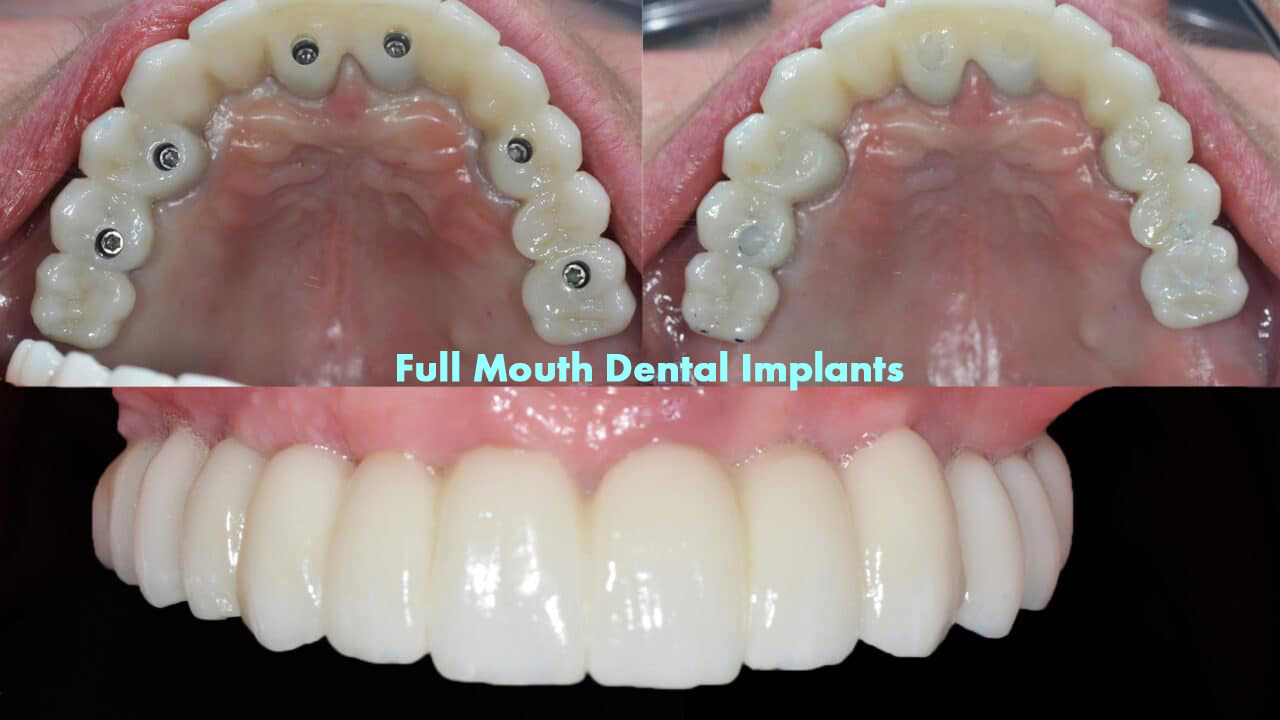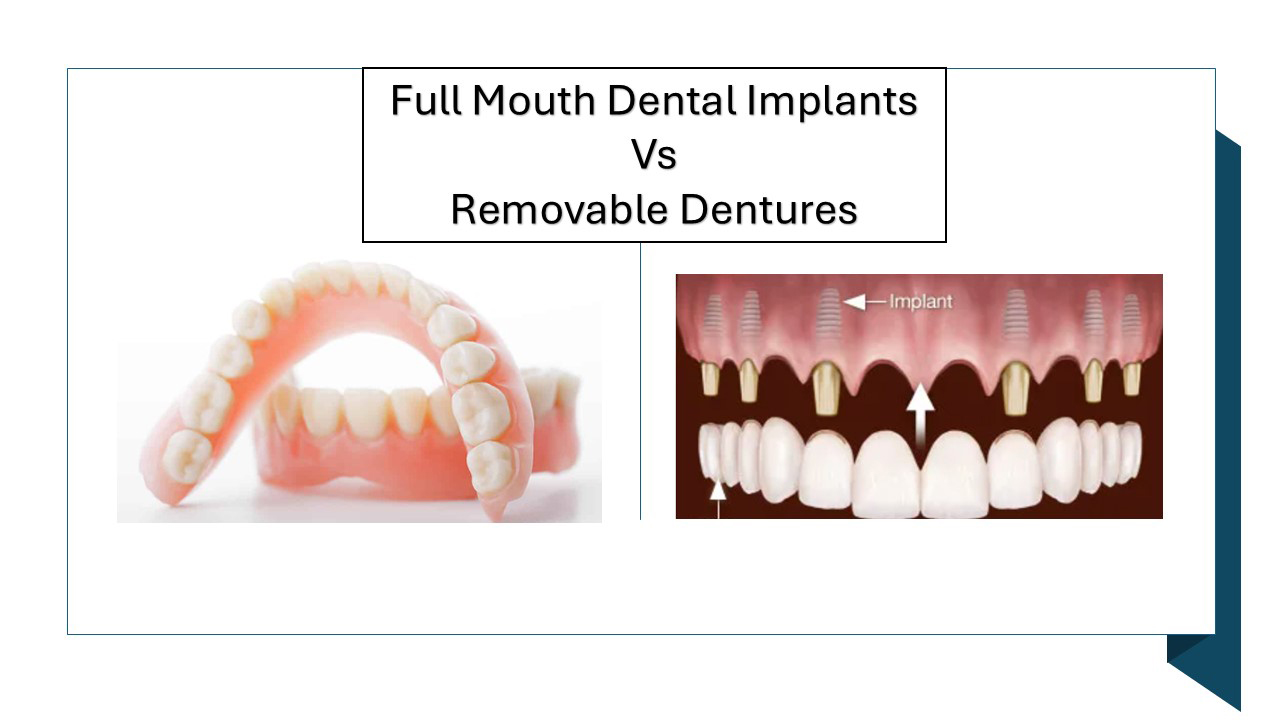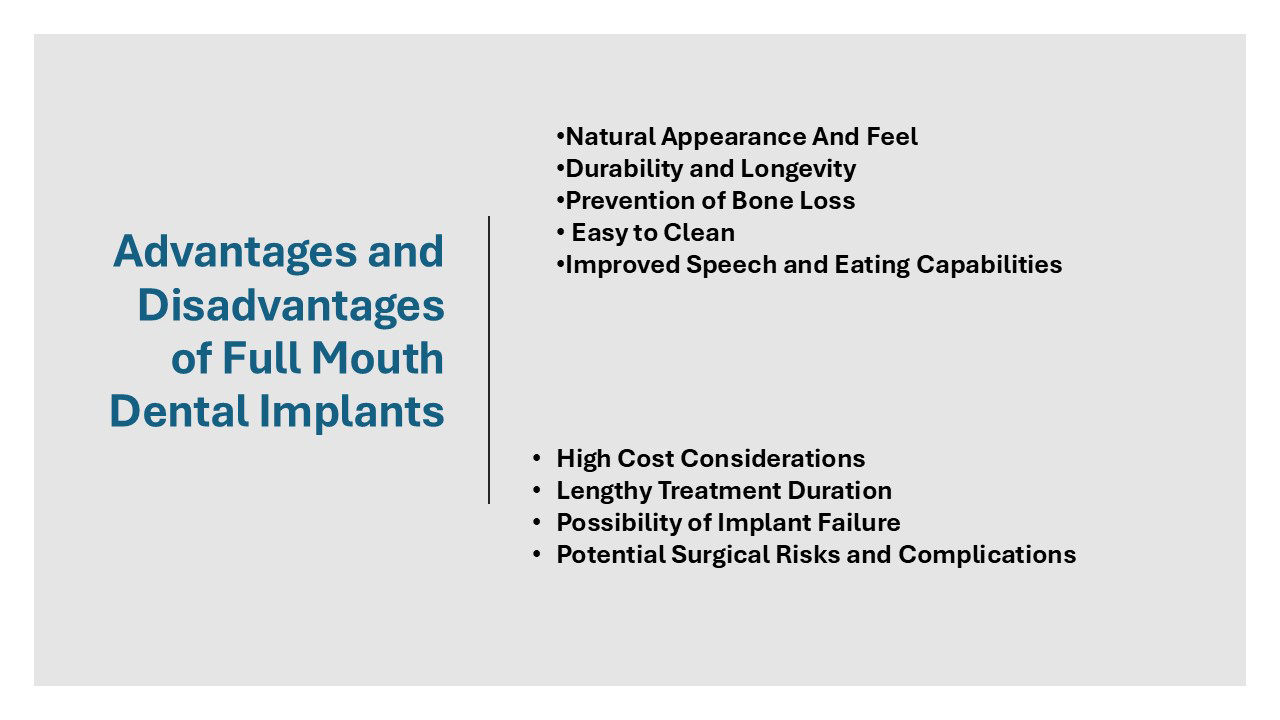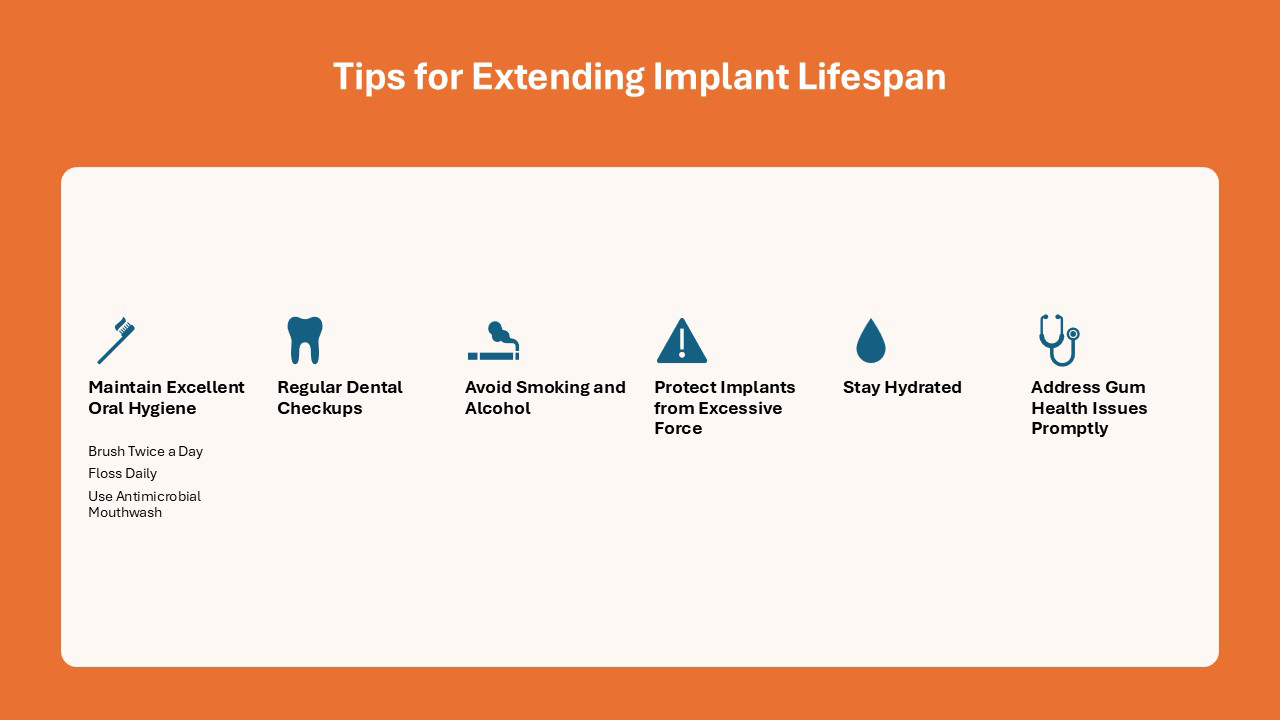Full Mouth Dental Implants.
Only for boundary-breakers .


Beyond the dentristy.
If you've ever lost a tooth or needed a replacement, you might have heard about Full Mouth Dental Implants.
They are a popular solution that not only looks and feels like your natural teeth but also offers long-term benefits. In this page, we’ll walk you through everything you need to know about full Mouth Dental Implants in a simple and easy-to-understand way.
Full Mouth Dental Implants

Full-mouth dental implants are a customised treatment option for those who have either lost all of their teeth or have suffered severe damage to their teeth due to impact or microbial infection. In this treatment, the number of implants needed can be reduced by using long and short bridges between the implants.
Additionally, due to the regional nature of dental implant treatments, porcelain gums—also known as pink aesthetics—are usually not required. As a result, the treatment leads to a more natural smile, and moreover, the maintenance and hygiene of these implants are almost identical to that of natural teeth.
For a full mouth dental implant, adequate or recoverable bone density is essential, particularly in the posterior areas. When the patient is eligible, full mouth dental implants offer several advantages, the most important being:
- Implants, particularly in the posterior regions, inhibit jawbone resorption, thereby allowing the patient to preserve facial aesthetic.
- You will not have to worry about problems like food impaction or difficulty maintaining good hygiene after getting a full mouth implant.
- A full mouth implant makes chewing almost as easy as it was when you had natural teeth.
- When properly cared for, full-mouth implants can endure for decades. They are a superior alternative to dentures in terms of treatment longevity.
Full mouth dental implants constitute a sophisticated dental treatment that employs a combination of implants and bridges to restore the entire dentition. In this process, dental implants are placed at strategic points in the jawbone. As a general rule, as the quantity of implants increases, the pressure on each implant diminishes, which in turn enhances both the durability and comfort of the treatment.
Typically, in full mouth implant procedures, 6 to 8 implants are placed in a single jaw. Therefore, the patient's bone density needs to be high enough to support eight implants.
Differences from Traditional Dentures

Full mouth dental implant treatments offer advantages in chewing, cleaning, biting, speaking, and aesthetics, much like natural teeth. However, the patient's quality of life may suffer with dentures, as they do not provide the same benefits as implants in these areas. For instance, they are not as easy to clean as dental implants, do not assist with chewing as effectively, and cannot maintain facial aesthetics as well.
The success of a dental implant procedure depends on three key factors.
Osseointegration:
The success of implant treatments relies on the fusion of dental implants to the jawbone. Only once this process has been completed properly are the patient's permanent implants placed. In the meantime, patients receive temporary implants. However, this period may extend to four, six, or even eight months, particularly for individuals with chronic diseases or diabetes.
Cutting-Edge Materials Used in Implants
Full mouth dental implant treatments utilise biocompatible materials such as titanium and zirconium. At Avita Smile, we prioritise Staraumann quality, which employs 4th grade pure titanium or a combination of titanium and zirconium in its implant products. However, we see that some companies use a 0.5% nickel mixture, which can cause serious complications in patients with metal allergies.
The Latest Technological Advancements in Implant Dentistry
Dental implant treatments using computer-aided CAD-CAM devices have extremely low error rates. Further, advancements in imaging technology and the application of AI tools for implant site detection have substantially improved treatment success rates. Because of these improvements, implant treatments are becoming more and more dependable.
The success rate of full mouth dental implant treatments gradually declines with each passing day. As time progresses, your healthy teeth will migrate towards the gaps left by missing teeth, bone resorption will intensify due to the porous nature of the jawbone, particularly in the posterior regions, and complications such as microbial infections and gingival recession will diminish the likelihood of successful treatment.
So, it is essential that you consult with a dentist regarding a full-mouth dental implant if you are experiencing tooth loss and your teeth are irreversibly loose. Moreover, since these treatments are customizable treatments, a suitable treatment plan can be created to protect your healthy teeth.
The first modern dental implant treatments were introduced in 1950 when Swedish scientists discovered that titanium could fuse with the bone and function like a natural bone. From this discovery, the first implant companies. Subsequent to this discovery, the preeminent dental corporations Nobel Bio Care and Straumann were established in 1952 and 1954, respectively.
Dental implants, in their contemporary form, have been around for seventy years following this innovation.
Dental implants have been the subject of numerous scientific studies on success rates and possible complications. In 2015, in a 13-year scientific study published in the "International Journal of Oral and Maxillofacial Surgery," the success rate of dental implants was 94.6%. In another scientific study, implants placed in the upper jaw-maxilla implants were compared with the lower jaw, and a lower success rate was observed.
Dental implants, when inserted into the jawbone, stimulate bone growth akin to a tooth root, enhancing cellular proliferation in the jawbone and preserving its healthy alignment. In patients who do not utilise implants or who favour removable dentures over dental implants, indications of ageing manifest more rapidly. In essence, while dental implants do not reverse ageing, they can substantially mitigate the visible effects of ageing on our facial appearance.
In dental implant reviews, patients express their satisfaction as if they are starting a new chapter in life. That these treatments can produce such a dramatic difference in how they look is the primary factor. Despite all the difficulties of the treatment process, patients are usually happy with the results.
However, at Avita Smile, we care more about the long-term satisfaction of our patients than their initial reactions to dental treatment. We therefore ensure that all of the components that contribute to the success of an implant treatment are meticulously fulfilled. With a combined 20–30 years of experience, our dentists devise treatment plans that rule out every conceivable reason for implant treatments to fail.
Dental implant before and after photos can give you a good idea of what to expect from the procedure. Especially if you pay attention to the changes in the jaw aesthetics of the patients, you can observe better how much the facial aesthetics of the patients have improved. Also, to get a better idea of what to expect from implant treatments, it is best to look at before and after photos taken around the same age, with a similar head shape (round or oval), and the same skin tone.

The primary benefits of full mouth dental implant procedures are
Natural Appearance And Feel
As prosthetic teeth are not utilised in these treatments and the application is localised, the patient's natural gums are accentuated, providing a superior aesthetic appearance compared to fixed prostheses.
Durability and Longevity
Full mouth dental implant treatments utilise more implants than fixed prostheses, resulting in greater longevity compared to the latter. Furthermore, when an issue arises, you may only rectify the affected tooth. There is no need to treat the entire prosthesis as with fixed prostheses.
Prevention of Bone Loss
Implants enhance facial aesthetics by mitigating jawbone resorption. Due to the porous structure of the jawbone, the absence of implants following tooth loss leads to accelerated bone resorption and subsequent jawbone collapse.
Improved Speech and Eating Capabilities
Full mouth dental implants exhibit resistance to significant chewing forces, akin to natural teeth. After treatment, the patient's ability to speak and eat also improves.
Easy to Clean
The upkeep of comprehensive dental implant procedures mirrors that of natural dentition, and complications such as food accumulation beneath the palate, typically linked to fixed dentures, are absent.
The primary disadvantages of full mouth dental implants are as follows.
High Cost Considerations
These treatments have a notably higher implant count, which also results in a higher treatment cost. Furthermore, because full mouth dental implants are placed on any point in the jawbone rather than just certain bones, unlike fixed prostheses, they necessitate a more thorough examination and treatment plan. This is an additional factor driving up treatment costs.
Lengthy Treatment Duration
Full mouth implant treatments require a longer treatment period due to treatment requirements such as bone augmentation for all implants (if necessary). Due to their use in the posterior regions of the jawbone, where the porous nature of the bone increases, the healing period is typically longer.
Potential Surgical Risks and Complications
Compared to fixed prostheses, there is a greater chance of infection spreading throughout the body during full mouth dental implant procedures because they involve all teeth and have a longer healing period.
Possibility of Implant Failure
In full mouth dental implant procedures, the likelihood of implant (one of the implants) failure is greater than in fixed prostheses. Reason being, full-mouth implants use implants at all essential points in the jawbone, whereas fixed prostheses use the strongest jawbones.
Full moth dental implant procedures are basically two-stage procedures. First, the patient will get implants and temporary dental restorations like crowns and bridges. In the second stage, the patient's temporary implants are removed and permanent implants are inserted after rehearsals. Now, let us delve deeper into the procedures that you will encounter throughout these processes.
Initial Consultation and Planning
This process establishes effective communication between the patient and the dentist, facilitating a thorough analysis of the patient's expectations and social status. The patient's allergies, diabetes, and autoimmune disorders that may influence the healing process are also assessed.
Surgical Steps
The initial step in this treatment involves acquiring adequate bone tissue and implementing cellular healing. Moreover, infection risks are assessed and oral cleaning protocols are executed.
Subsequently, implant holes are drilled in the designated areas as per the treatment plan, and titanium implants are inserted into these holes. The patient is fitted with temporary prostheses and discharged. On the same day, patients undergo all of these operations in a single or multiple sessions.
Healing and Recovery Process
The titanium implants used in implant procedures must osseointegrate with the jawbone, which typically takes three to six months. However, for those afflicted with auto immune system disorders, like diabetes, this time frame could be significantly lengthier.
Placement of Permanent Teeth
Upon completion of the fusion process of the implants to the jawbone, the patient is called back to the clinic for the implantation and insertion of permanent implants. Typically, a single session is all that is needed, but to give the patient the best chance of making the right choice, a week of rehearsals with temporary prostheses is administered.
You must meet the following criteria for full mouth dental implant treatment.
Health and Medical Criteria
For diabetes patients to undergo full mouth dental implant treatments, their blood sugar levels must be below 180 mg/dL and their HbA1c value, which indicates blood sugar control over the past three months, must be below 7%.
Moreover, unmanaged immune system disorders, coagulation abnormalities, and the administration of anticoagulants may impede treatment.
Bone Density Requirements
It is crucial for the patient to possess adequate bone density for comprehensive dental implants. The porous composition of the jawbone, particularly in the posterior regions, leads to accelerated bone resorption in areas that have been edentulous for an extended period, and delayed interventions jeopardise treatment success.
Dental Hygene
The patient must maintain proper oral hygiene in order to undergo full mouth implant treatments, which involve the simultaneous application of multiple implants. Otherwise, the treatment must be applied after the patient has undergone deep cleaning.
Dental implant costs can vary widely from one country to another, as shown in the table below.
| Country | 6 Implant Price | 8 Implant Price | Bone Augmentation Cost | Anesthesia Cost |
|---|---|---|---|---|
| Turkey | $10,000 - $15,000 | $12,000 - $18,000 | Included in the price | Included in the price |
| UK | $25,000 - $40,000 | $30,000 - $50,000 | $1,000 - $3,000 | $500 - $1,500 |
| Germany | $22,000 - $38,000 | $28,000 - $45,000 | $1,000 - $3,000 | $500 - $1,500 |
| USA | $35,000 - $60,000 | $45,000 - $75,000 | $1,500 - $5,000 | $600 - $2,000 |
| Hungary | $15,000 - $25,000 | $18,000 - $30,000 | $800 - $2,500 | $400 - $1,000 |
Factors influencing cost
Dental implant costs are primarily determined by the amount that the dentist and clinic are willing to charge for the procedure. On the other hand, the price can be significantly affected by the preferred brand of implants. Also, a precise cost cannot be provided without first conducting a thorough examination, as implant treatments involve customised treatment planning.
For the success of full mouth implant treatment, which is a very laborious and expensive treatment, you should be meticulous and careful in some points.

Maintain Excellent Oral Hygiene
- Brush Twice a Day: Brush your teeth twice a day with a soft-tipped toothbrush. Move the toothbrush in a circular motion to clean between the teeth.
- Floss Daily: The success of dental implants requires regular flossing to prevent the buildup of bacteria around the implant. Remember that the most common cause of implant failure is bacterial infections that occur after treatment.
- Use Antimicrobial Mouthwash: Rinsing with an antibacterial mouthwash can help reduce harmful bacteria around the implant area.
Regular Dental Checkups
For the success of a comprehensive implant treatment, you should visit your dentist at least twice a year. Early detection and timely intervention can prevent the implant from falling out.
Avoid Smoking and Alcohol
Smoking and alcohol consumption can increase the risk of inflammation in implant treatments and cause the implant to fall out. If you find it exceedingly challenging to cease smoking, it is advisable to pursue professional assistance in oral hygiene.
Protect Implants from Excessive Force
Crowns and implants are typically resistant to excessive chewing stress. A lifetime guarantee against breakage is even offered by some companies, like Straumann, for their implants. However, excessive chewing can cause the implant to wobble at the root of the implant, which can result in the implant falling out over time.
Stay Hydrated
If you drink enough water, you will not only keep bad bacteria out of your mouth, but you will also lessen the likelihood of tiny cracks developing on porcelain crowns. In this regard, it is important to drink enough of water following implant treatment.
Address Gum Health Issues Promptly
When gum disease sets in, dental implants can be in danger in no time. Therefore, it is crucial to act quickly in situations where the gums around the implant become red, bleed, or swollen. Otherwise, infection of the implant root will eventually result in the implant falling out.
Typically, there are three alternatives to comprehensive dental implant procedures. With each approach comes a set of advantages and disadvantages.
Traditional Dentures
While full mouth dental implants can take time to heal and require fusion time, removable dentures can be quickly and easily replaced. However, traditional dentures do little to enhance the patient's facial aesthetics due to the lack of treatment to enhance the jaw's appearance.
All on Four and All on Six
All on four and all on Six treatments, also known as fixed prostheses, require fewer implants than full mouth implant treatments. The restricted quantity of implants utilised in these procedures is exclusively placed on the most robust bones, thereby diminishing the likelihood of post-treatment infection.
Furthermore, due to the implants being affixed to solid bones, the risk of falling is comparatively minimal. Also, the All on Four procedure employs elongated implants for two of the placements, which are positioned at an angle to enhance stability. This enhances the efficacy of the treatment, even with a reduced number of dental implants employed.
Aesthetic Comparison of Fixed Prostheses and Full Mouth Implants
In fixed prosthodontics, pink aesthetics are utilised to bridge the gap between the gingiva and the palate. In full mouth dental implant procedures, a more natural appearance is attained as pink aesthetics are not utilised.
The most appropriate treatment for you is only determined after a comprehensive bone analysis.
Below are the frequently asked questions and answers about dental implant treatments.
Do Full Mouth Dental Implants Hurt?
Since the treatment is performed under local anaesthesia, you will not feel any pain or soreness. However, for people with a high fear threshold, the treatment can be performed under general anaesthesia.
How Long Does the Recovery Process Take?
It takes two or three days for the wounds and swelling to heal after the implants are placed. During this time, the patient is given antibiotics and painkillers to prevent the risk of infection and to prevent pain.
Based on the patient's genetic predispositions and bone density, osseointegration typically takes 3 to 6 months after implant placement.
Are Dental Implants Permanent?
Yes, dental implants are permanent treatments. Their average lifespan is 20 years. At the end of this period, only the crown is replaced without the need for implant replacement.
Is There an Age Limit for Getting Implants?
There is no maximum age restriction for dental implant procedures. Nevertheless, children do not undergo implant placement until their jawbones have fully matured, which typically occurs after the age of 16.
What Are the Risks of Implant Failure?
Dental implant procedures exhibit exceptionally high success rates. However, there are still some risks inherent in the treatment. The most significant of these risks are:
- If the area gets inflamed after the implant is made, it could hinder the fusion of the implant to the jawbone, leading to the implant falling out.
- Continued bone resorption in the patient post-implant placement may result in inadequate fusion of the implant to the bone, potentially culminating in failure.
- When two implants are placed side by side, a 3 mm space should be left between them, and a distance of 1.5 mm should be left between the implant and the adjacent tooth. In cases where these distance standards cannot be met due to insufficient space, the implants will not be able to adhere to the jawbone.
How Long Does the Implant Procedure take?
The typical duration of a full mouth dental implant treatment is approximately 1.5 hours. However, if additional procedures like bone augmentation or dental cleaning are needed, the treatment will require another sessions.
Can I Eat Normally after Getting Implants?
Implants are the treatments that best mimic natural teeth. Thus, patients can enhance their facial aesthetics and experience the same level of comfort as with their natural teeth following treatment.
Conclusion
The primary prerequisite for comprehensive dental implant treatment is adequate bone density in the oral cavity. Provided your biological condition permits, full mouth implant treatments present considerable benefits compared to fixed dentures. While fixed dentures cannot be removed, issues such as food particles lodged beneath them significantly contribute to patient discomfort. However, fixed implants behave exactly like your natural teeth and do not cause such complications.
At Avita Smile, we utilise the premier implant brand, Straumann, for full mouth dental implants and fixed prosthesis applications. With a combined 20–30 years of experience, our dentists will use their expertise to discover the solution that is ideal for you.
Timeline to your new smile.
A more beautiful version of your present smile.
Dental Health is our super and only one specialisation.
Dental & oral health is our passion. The goal is a less obvious, natural and more beautiful version of your current smile and oral health.
Bright smile.
Illuminate your world with a smile that shines bright and exudes confidence.
Confidence booster.
Unlock your true potential with a smile that boosts your confidence.
Pure & perfect.
Experience the pinnacle of dental perfection with avita dental treatments.









